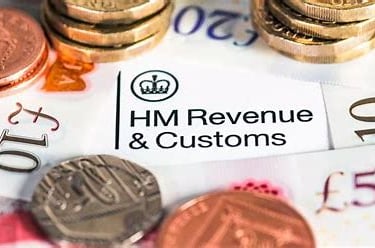"Wait, My Free Holiday is Taxable?!" Understanding Non-Cash Rewards and HMRC Rules
A Creator’s Story: The Holiday Gift with a Tax Twist
SELF ASSESSMENTINCOME STREAMSCOLLABORATIONTAXABLE INCOMEGIFTS AND PERKS
Cre8tax
1/21/20254 min read
Being a successful content creator can come with incredible perks, from free products to all-expenses-paid trips. But many creators are unaware that these rewards aren’t always as "free" as they seem.
Meet 'Chloe', a lifestyle influencer who learned this the hard way. She was offered a luxurious Caribbean holiday in exchange for promoting a travel brand on her social media. The experience was a dream come true—until a friend informed her that the trip's entire value could be considered taxable income by HMRC.
Chloe's situation highlights an important reality for creators: non-cash rewards are often subject to tax. Understanding HMRC’s rules on this can help you avoid unexpected surprises when tax season rolls around.


"I didn't even get any actual cash...why am I being taxed?
"Hi, I’m Chloe, and I’m a lifestyle content creator. A few months ago, over the Christmas period, I got what I thought was the dream collaboration: a luxury travel company invited me on an all-expenses-paid holiday to a stunning Caribbean resort. In return, I’d create promotional content—posts, videos, stories, the whole package.
I was over the moon! I mean, who wouldn’t be excited about a free holiday? But then my friend dropped the bombshell: I might have to pay tax on the entire value of the trip. Apparently, HMRC treats gifts and perks as taxable income. Wait, what? I didn’t even get any actual cash, so why am I being taxed?
This is where things started to get confusing. If you’re a creator like me, here’s what you need to know to avoid surprises like mine."


What Does HMRC Say About Non-Cash Rewards?
According to HMRC, non-cash rewards—like free holidays, products, or services—are considered a form of income if you’re receiving them in exchange for your business activities, such as promotional work. Essentially, anything you’re gifted that has monetary value and is tied to your job as a creator can be taxable.
HMRC’s reasoning is that these rewards are part of your earnings, just like cash payments. This applies to:
Product gifts (e.g., tech gadgets, beauty products)
Experiences (e.g., event tickets, spa days)
Services (e.g., free professional photography or consultations)
Trips and holidays
The taxable amount is the market value of the reward—what it would cost if you paid for it yourself. So, if your free holiday would normally cost £5,000, you’d need to declare that amount as income.


Why are Non-Cash Rewards Taxable?
HMRC sees non-cash rewards as payment for your work. Since you’re promoting a brand or product in return for the reward, it’s treated no differently from earning money. This prevents individuals from bypassing tax by receiving high-value gifts instead of cash.
The same rule applies across various industries. For example, a business owner who barters services (e.g., offering graphic design in exchange for a holiday) would still need to declare the value of that service or reward as income.
What are the tax implications?
Once you declare the value of non-cash rewards on your self-assessment tax return, they become part of your total taxable income. Depending on your income level, this could push you into a higher tax bracket, meaning you’ll pay more tax overall.
Here’s how it might look:
You’re currently in the basic rate tax band (20%), but the value of a £5,000 holiday pushes your total income into the higher rate band (40%).
You’d need to pay tax on the holiday value according to the new rate.
If you’re registered for VAT and your earnings exceed the VAT threshold (£85,000), non-cash rewards may also count toward your VAT liability.
Are there any exceptions?
There are certain scenarios where non-cash rewards might not be taxable.
For example, if the reward has minimal value (e.g., branded merchandise like a pen or keychain), it may fall under HMRC’s trivial benefits rule.
However, this generally doesn’t apply to high-value rewards like holidays or expensive products.


Lessons Learned
Chloe’s experience underscores an important lesson for content creators: perks come with responsibilities. Keeping track of all rewards and working with a tax advisor can help ensure you stay on top of your obligations. By staying organised and informed, you can avoid nasty surprises and manage your taxes with confidence.
If you’re a content creator, make sure you’re prepared for tax season. A little organisation and planning can save you from headaches later on! At Cre8tax, we specialise in supporting content creators with tailored tax advice to keep you compliant and stress-free.
Ready to take control of your taxes? Contact us to find out more.
Email us at info@cre8tax.co.uk or call free from a mobile or landline on 0800 0016 878.




